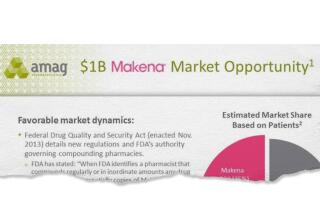2nd Generic Drug-Switching Case Reported
- Share via
WASHINGTON — Federal officials are investigating Bolar Pharmaceutical Co. for possible fraud in connection with the approval of a generic version of the brand-name anti-depressant drug Mellaril.
Knowledgeable officials said Thursday that both the Food and Drug Administration and the House Energy and Commerce oversight subcommittee are looking into charges that Bolar fraudulently submitted the brand-name drug instead of the generic version to a testing laboratory--the second such incident reported.
Error Reportedly Corrected
Federal officials said that the mistake was corrected at the time and that Bolar’s generic drug ultimately was tested and approved. The generic drug now on the market, of the chemical thioridazine, is identical to Mellaril and is safe and effective, they said.
“The stuff that’s being marketed is the real thing,” FDA spokesman Jeff Nesbit said.
Executives of Bolar, which is in Copiague, N. Y., could not be reached for comment.
This is the second time this week that Bolar, one of the nation’s largest manufacturers of generic drugs, has become embroiled in the broadening federal investigation of charges that some generics have been improperly tested and marketed.
The FDA announced Monday that it will withdraw approval of Bolar’s generic equivalent of Dyazide, a leading blood pressure drug.
The investigation of Bolar’s generic equivalent of Mellaril is based on a 1982 letter in which Pharmakinetics Laboratories Inc. of Baltimore told Bolar that it believed Bolar had submitted Mellaril tablets instead of its own generic equivalent.
Determining Equivalency
It was Pharmakinetics’ job to determine whether Bolar’s generic was chemically equivalent to Mellaril, which is manufactured by Sandoz Pharmaceuticals Corp.
Pharmakinetics refused to comment specifically on its testing of Bolar’s generic drug. But it said in a statement:
“Seven years ago, in 1982, Pharmakinetics refused to conduct bio-equivalency studies on tablets supplied to the company by a pharmaceutical manufacturer. This refusal was based on the Pharmakinetics’ personnel visual inspection of four batches of test tablets, which caused then-company officials to question the true identify of the product.”
After it communicated its suspicions to the manufacturer, Pharmakinetics said, the manufacturer supplied tablets that appeared to be “legitimate.” Testing proceeded, and the FDA ultimately approved the generic drug for marketing.
Probe Uncovered Letter
Nesbit said that the FDA discovered Pharmakinetics’ 1982 letter to Bolar as part of its investigation of alleged fraud and bribery in the federal approval process for low-cost generic drugs.
The other case of apparent drug-switching that has come to light in the current investigation involved Vitarine Pharmaceuticals of Springfield, N. J. It has voluntarily withdrawn its generic version of Dyazide after admitting that it had substituted samples of the brand-name drug for its own in the approval process.
More to Read
Inside the business of entertainment
The Wide Shot brings you news, analysis and insights on everything from streaming wars to production — and what it all means for the future.
You may occasionally receive promotional content from the Los Angeles Times.










